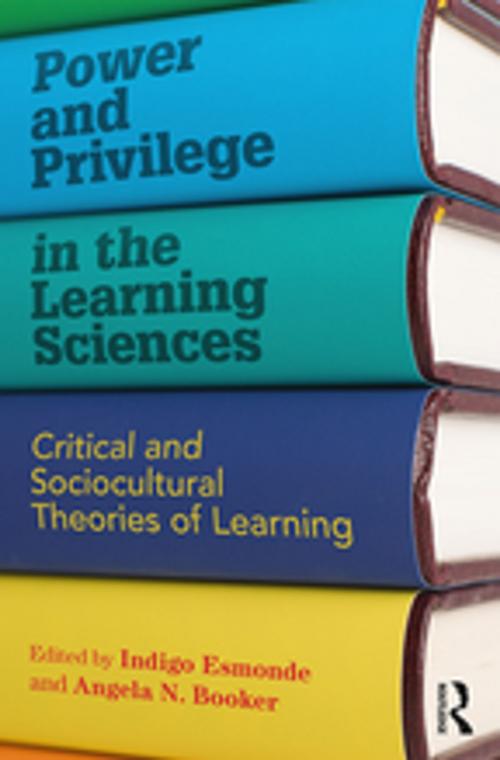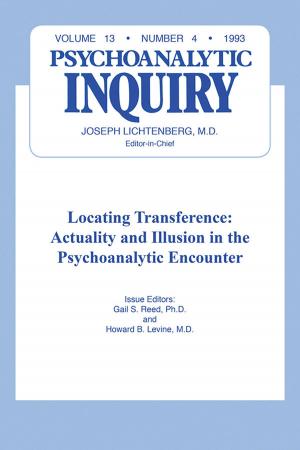Power and Privilege in the Learning Sciences
Critical and Sociocultural Theories of Learning
Nonfiction, Reference & Language, Education & Teaching| Author: | ISBN: | 9781317413134 | |
| Publisher: | Taylor and Francis | Publication: | December 1, 2016 |
| Imprint: | Routledge | Language: | English |
| Author: | |
| ISBN: | 9781317413134 |
| Publisher: | Taylor and Francis |
| Publication: | December 1, 2016 |
| Imprint: | Routledge |
| Language: | English |
Although power and privilege are embedded in all learning environments, the learning sciences is dominated by individual cognitive theories of learning that cannot expose the workings of power. Power and Privilege in the Learning Sciences: Critical and Sociocultural Theories of Learning addresses the ways in which research on human learning can acknowledge the influence of differential access to power on the organization of learning in particular settings. Written by established and emerging scholars in the learning sciences and related fields, the chapters in this volume introduce connections to critical and poststructural race theories, critical disability studies, queer theory, settler-colonial theory, and critical pedagogy as tools for analyzing dimensions of learning environments and normativity. A vital resource for students and researchers in the fields of learning sciences, curriculum studies, educational psychology, and beyond, this book introduces key literature, adapts theory for application in education, and highlights areas of research and teaching that can benefit from critical theoretical methods.
Although power and privilege are embedded in all learning environments, the learning sciences is dominated by individual cognitive theories of learning that cannot expose the workings of power. Power and Privilege in the Learning Sciences: Critical and Sociocultural Theories of Learning addresses the ways in which research on human learning can acknowledge the influence of differential access to power on the organization of learning in particular settings. Written by established and emerging scholars in the learning sciences and related fields, the chapters in this volume introduce connections to critical and poststructural race theories, critical disability studies, queer theory, settler-colonial theory, and critical pedagogy as tools for analyzing dimensions of learning environments and normativity. A vital resource for students and researchers in the fields of learning sciences, curriculum studies, educational psychology, and beyond, this book introduces key literature, adapts theory for application in education, and highlights areas of research and teaching that can benefit from critical theoretical methods.















